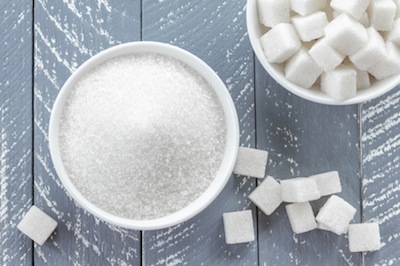As an oncology nutritionist, I meet with people throughout the stages of treatment,
recovery, and survivorship. The relationship between food and cancer is an ever-
developing and popular field, and because of this, the people I meet with tend to
have many questions. The following are a few of the most common questions I’m
asked.
Does sugar feed cancer?
This is a topic I’m asked about almost everyday, though, it’s often posed as a
statement, rather than a question. The Internet is flooded with the concept that
sugar feeds cancer, and much of that information is not coming from reliable or
scientifically-based sources. The answer to “does sugar feed cancer” is: yes… sort
of. Sugar is the body’s preferred form of energy, and it “feeds”, not only malignant
cells, but every other cell in the body and is the only form of energy that fuels the
brain. If sugar is not readily available, malignant cells can be sustained from the
byproducts of fat and muscle breakdown.
There is, however, a likely connection between sugar and cancer, but the connection
is thought to lie in the way that sugar is metabolized - or processed - by the body.
Alterations in sugar metabolism that involve insulin resistance lead to high levels of
insulin. It’s high levels of insulin and another growth hormone, called IGF-1, that are
involved in the growth of cancer. If this sounds confusing - it is - and the relationship
between insulin and cancer is not fully understood by the medical community at this
time.
What this information boils down to, for you and me, is that for cancer, as with many
chronic diseases, it’s important to get to a healthy weight, exercise, and maintain
appropriate blood sugar levels through diet. How do we do this? Eating for optimal
blood sugar levels could be a post on its own, but the basics are: choose high quality
carbohydrates (i.e. the “whole” ones such as beans, whole grains, and vegetables)
and limit them, reasonably avoid refined sugars, particularly sugar-sweetened
beverages, and consume carbohydrates as part of meals that contain fiber and fat,
both of which can slow the release of sugar into the bloodstream.
Alexandra Rothwell, MPH, RD, CSO, CDN
Alexandra Rothwell is registered dietitian, with a specialization in oncology nutrition.
She currently works at Mount Sinai’s Dubin Breast Center, in New York City,
primarily consulting with breast cancer patients throughout treatment and
survivorship. Previously, she worked with patients of head and neck cancer, bone
marrow transplant, gastric, colon, and prostate cancer, among other malignancies.
She has completed her Masters of Public Health from Mount Sinai’s Ichan School of
Medicine and received her nutrition education from New York University.
